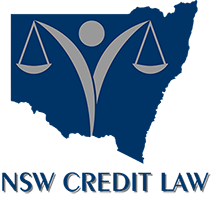The Rise and Fall of Darren Misquitta’s Genius Childcare Empire – A Cautionary Tale for Creditors
NSW CAPI Agents and NSW Credit Law have a debt recovery rate over 80%, which is not matched by many in the industry. However, the major contributing factor to that debt recovery rate not being higher is insolvency of debtors. Both corporate liquidations and personal bankruptcies. No insolvency in our history has affected more clients than the insolvency of the Genius Childcare empire and the bankruptcy of its director Darren Misquitta. Darren Misquatta’s own online business profile describes him as a "dynamic Australian business professional whose career trajectory illustrates versatility and impact on diverse industries". It claims he is a renowned executive in
Protecting Your Business: The Importance of Payment, Default, and Indemnity Terms in Debt Recovery
Introduction In the world of business, timely payments are crucial for maintaining cash flow and ensuring operational stability. Understanding payment terms, default provisions, and indemnity clauses can be vital in safeguarding your interests against debtors. Importance of Clear Payment Terms Define Expectations: Clearly outline when payments are due. Specify payment methods and any applicable late fees. This clarity helps set expectations and minimises disputes. Encourage Timeliness: Consider offering discounts for early payments or penalties for late payments to motivate timely transactions. Default Terms: Protecting Your Interests Definition of Default: Establish what constitutes a default (e.g., late payments, non-payment). This allows you to act swiftly when a
Understanding Debt Recovery Before the Financial Year-End: A Guide for Clients
As a specialised credit, commercial and debt recovery lawyer in Australia, I often encounter clients who overlook the critical timing of debt recovery, especially as the end of the financial year approaches. This period presents a unique opportunity for businesses to either recover outstanding debts or write them off for tax purposes when reporting to the Australian Taxation Office (ATO). In this article, we will explore the significance of this timing, the implications of accrual versus cash basis reporting, and how each method can affect your business. The Importance of Recovering Debts Before the Financial Year End The end of the financial
Understanding Skip Tracing: A Guide for Clients
In the litigation, debt recovery and commercial and private inquiry (CAPI) industries the ability to locate individuals quickly and efficiently is paramount. One of the most effective methods employed in this regard is known as skip tracing. This article aims to provide you with a clear understanding of what skip tracing is, the methodologies involved, and the various investigations that may take place during the process. What is Skip Tracing? Skip tracing is carried out by licensed CAPI agents. It is the process of locating a person's whereabouts, typically after they have "skipped" or gone missing. This term is frequently used
Understanding Legal Costs and Disbursements in Debt Recovery Litigation
Debt recovery litigation is a critical area of law that helps creditors reclaim owed money. However, one aspect that often surprises clients is the complexity surrounding legal costs and disbursements, particularly regarding their recoverability. This article aims to clarify why not all legal costs and disbursements are recoverable in debt recovery actions, with a detailed focus on the costs associated with engaging process servers. Legal Costs in Debt Recovery Litigation When initiating debt recovery proceedings, clients typically incur various legal costs, including solicitor’s professional fees, court fees, and disbursements. Legal costs refer to the fees charged by solicitors for their services, which
Why is it Harder to Obtain Credit in Australia?
Why is it Harder to Obtain Credit in Australia? Have you struggled to obtain credit in Australia recently and are unsure why? What have been the recent developments in Australian Credit Law? What should small to medium (SM) business owners and credit providers consider when providing credit in the current climate? Obtaining credit in Australia can be more challenging due to economic conditions, regulatory frameworks, and individual creditworthiness. Still, in recent years, there have been developments in Australian Credit Law (ACL) which require lenders to be more responsible when providing credit: Regulatory Environment: Australia has strict lending regulations
Understanding Credit Provision for Businesses in Australia
Understanding Credit Provision for Businesses in Australia In the competitive landscape of small to medium (SM) businesses in Australia, offering credit to clients can be an effective strategy to boost sales and foster customer loyalty. However, it comes with its own set of challenges and considerations. Here are some key factors that SM businesses should keep in mind when providing credit to clients. Assessing Customer Creditworthiness Before extending credit, businesses need to evaluate potential clients' creditworthiness. This can be done through credit checks. SM businesses should analyse financial statements and consider the client's payment history. Tools and services are available to help
When a Defence is Filed
In the civil registry within the New South Wales (NSW) Local Court, a statement of claim for a liquidated debt is a common legal tool used to recover a specific sum of money that is owed. The defendant in any proceedings has the opportunity to respond by filing a defence. In our experience, in most cases a defence is not filed. It may happen once in every 20 or 25 cases. Even less cases proceed to a final hearing, with most settled during case management. However, the process can become intricate when the defendant decides to defend the claim. This article outlines
Using Insolvency Proceedings to Enforce Judgment
Introduction In Australia, creditors have various enforcement procedures at their disposal to recover debts from judgment debtors who fail to pay judgment debts. A judgment occurs when a court rules in favour of the creditor because the debtor has failed to respond to legal proceedings, or a matter has been heard by the court and the court has found in favour of the creditor. Judgment is a court order that the debtor owes the judgment debt amount, plus interest and legal costs, and is legally obligated to pay the creditor. However, obtaining a judgment does not automatically result in payment; creditors often
NSW government’s debt collection agency broke law using AI garnishee orders
Ombudsman report finds Revenue NSW engaged in ‘maladministration’ by taking money directly out of millions of bank accounts. The New South Wales government’s debt collection agency broke the law when it used an automated system to withdraw money from millions of bank accounts to claw back unpaid fines, a scathing report has found. The NSW ombudsman Paul Miller’s report, released on Tuesday, found Revenue NSW’s use of AI to generate garnishee orders broke the law from its introduction in 2016 until 2019, and that it was “wrong” until March 2022. A garnishee order is when Revenue NSW takes money directly out of people’s










